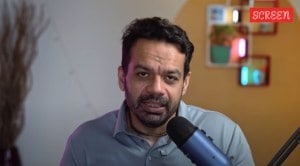Firing fuel
The Nilekani report lays out the destination for our unsustainable subsidy regime
It is absolutely clear by now that the current set-up for subsidising kerosene,LPG and fertilisers is unsustainable. It is financially unsustainable,of course,as the Centre struggles to contain ballooning fiscal expenditure. But its very implementation is also unsustainable,as it leaks hideously,meaning that it does not have the effect on improving the welfare of those targeted that was planned. And,as the recent murder of oil company executive Yashwant Sonawane demonstrates,its faulty implementation inevitably leads to law and order problems,and a loss of confidence in the state.
It is necessary,therefore,to work out precisely how to move beyond this byzantine,unworkable and unsustainable model. The larger cost of the plan is dependent on the degree of leakage; and the law and order consequences of black-marketing depend on the ease with which that leakage can occur. Thus the Nilekani report,from a task force led by the chairman of the UID authority,Nandan Nilekani,and which was commissioned with discovering methods to plug leakages in the subsidy framework. The 70-page interim report,submitted to the finance minister on Tuesday,lays out the only answer that anyone believes could possibly work in the long term: a shift to a system based on direct cash subsidies.
The choice of the head of the UID project to lead the team writing this report could not be a coincidence. Any direct-transfer regime will require a method to identify recipients of the transfer,and to monitor the transactions,and that will almost certainly have to be linked to a UID-like system. The report has,indeed,suggested the creation of a core subsidy management system that will maintain data on entitlements and subsidies for all beneficiaries. Transparency and openness all the way down the supply chain of subsidies have to be improved,the power of the eventual recipient has to be enhanced,and the identity of the eventual recipient has to be established. This is the only way out of the mess our subsidy regime has become,and this report is an important step forward.
Photos






- 01
- 02
- 03
- 04
- 05
























